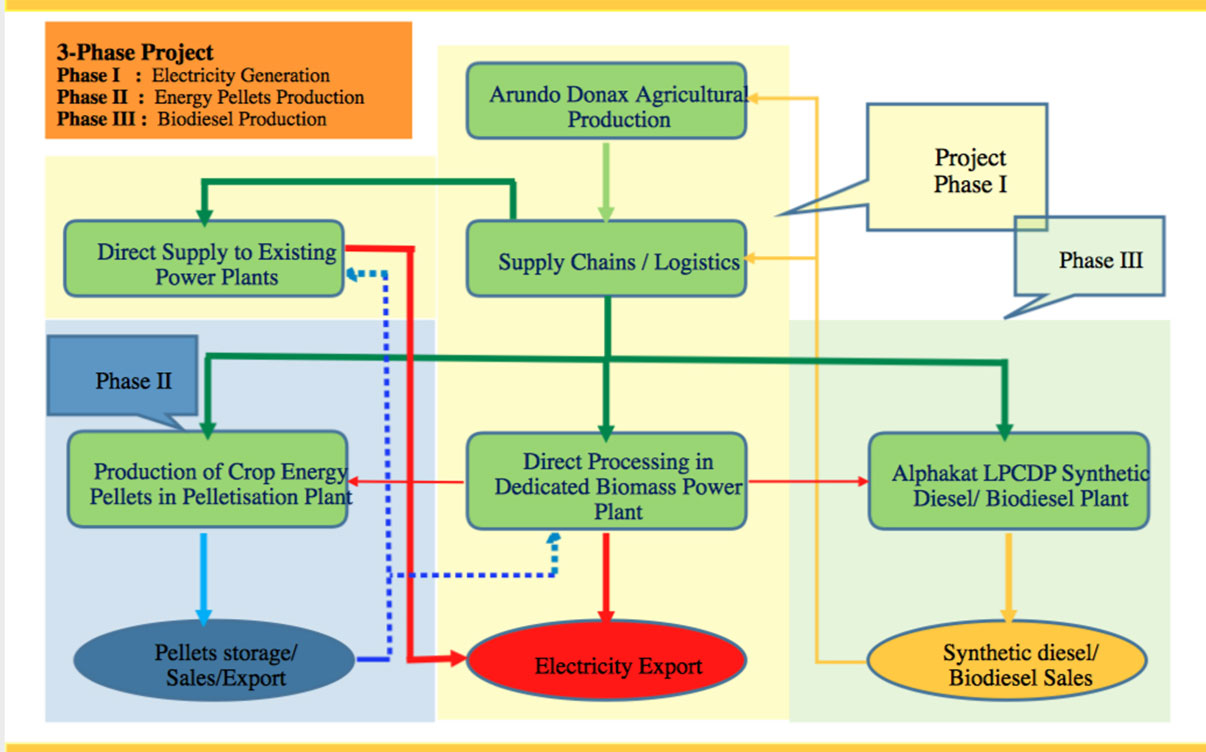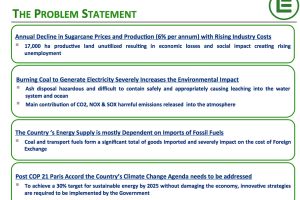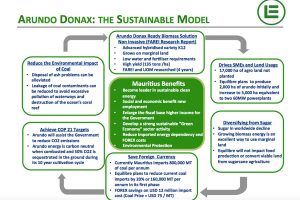Mauritius is ideally positioned to prove the Equilibre biomass-to-energy model, become a showcase and serve as a base to export the model into Africa and other emerging markets. It has a strong framework for the development of sustainable energy and has embraced the biomass-to- energy concept.
Mauritius is heavily dependent on imported energy sources (coal and heavy oil). Having become a signatory to the Paris COP 21 Accord it is keen to reduce greenhouse gas emission. It also needs to reduce the damaging ecological impact caused by disposal of toxic coal ash on the island.
As a result of the decline in the sugar industry, sugar cane production is declining at an estimated 6% per annum. There is general agreement that sugar can is no longer viable as a strategic industry.
As a result, small and medium planters have abandoned an estimated 17,000 Ha of land, while large-scale planters are economically viable only by using bagasse to supplement coal in their electricity generating plants. This provides a strong land bank for Equilibre’s activities.
Mauritius plans to add 200 MW of additional electricity generating capacity by 2022. It estimates that X MWs will be added by wind and photovoltaic sources, and the government is committed to increasing biomass into the sustainable energy mix.
Despite the Mauritian Government targeting a 30% decrease in greenhouse emissions by 2030, coal usage has increased in the past decade from 82,2% to 85,4% of total electricity production as a result of lower bagasse availability caused by decline in sugar production.

EQUILIBRE BUSINESS MODEL
Click on the Image to enlarge

